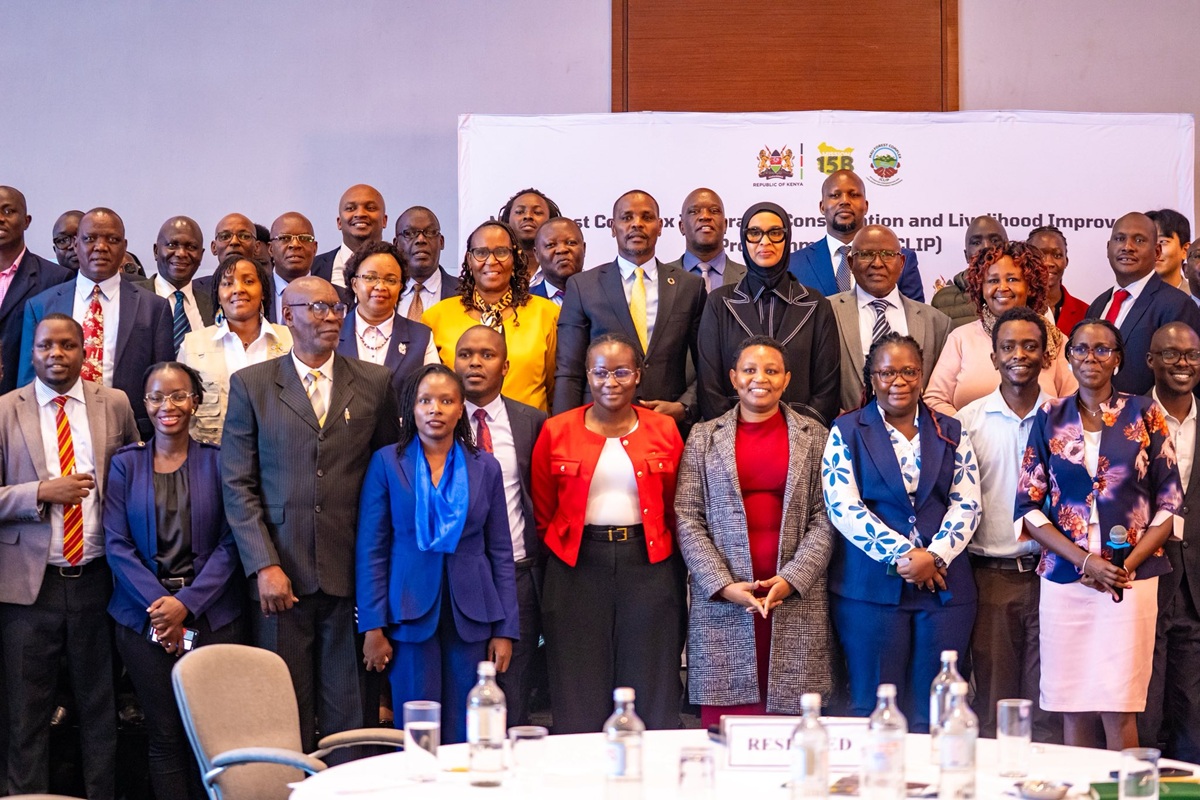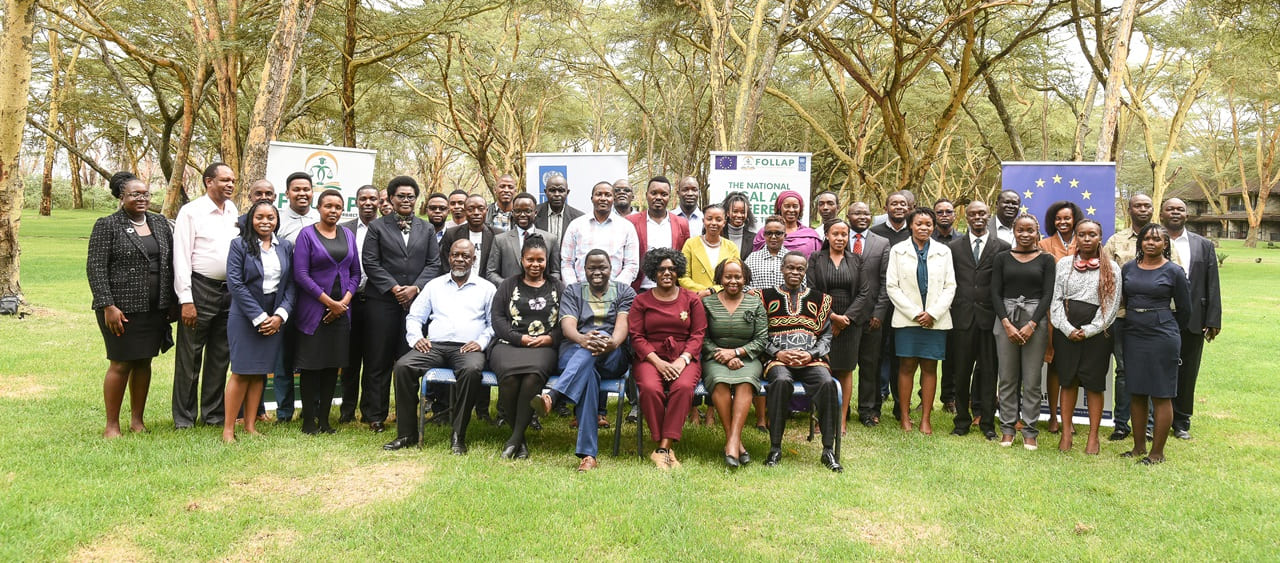The Egerton University Faculty of Law Legal Aid Project (FOLLAP) is set to host the fourth national legal aid conference on access to justice from October 22nd to 25th at the Lake Naivasha Simba Lodge, with support from the United Nations Environment Programme (UNEP).
This highly anticipated three-day event, themed ‘Climate Change and Environmental Justice,’ promises to bring together prominent legal and environmental scholars, practitioners, policymakers, and civil society members from various countries, including South Africa, Cameroon, and even parts of Europe. The international reach of the conference is a testament to the global importance of addressing climate change and its intersection with justice.
The conference will feature the presentation of at least 50 academic papers, showcasing innovative research on climate justice. It is expected to provide a platform for rich discussions on the nexus between environmental degradation, climate change, and access to justice, with participants coming from diverse sectors such as law, governance, and environmental activism.
A Legacy of Success
This year's conference follows in the footsteps of three highly successful previous annual events, which were supported by the European Union (EU) and the United Nations Development Programme (UNDP) Amkeni Wakenya initiative. The inaugural conference in December 2020 was themed "Strengthening Access to Justice through Legal Aid,” while the second, held in November-December 2021, focused on "Access to Justice in the Context of Economic Crises: Lessons from COVID-19." The third edition in November 2022 tackled the timely issue of "Democracy and Access to Justice during Electioneering Periods in Africa in the 21st Century."
This year’s theme, ‘Climate Change and Environmental Justice,’ highlights the growing recognition that environmental issues are not only about conservation but are deeply intertwined with social justice, human rights, and equitable legal frameworks.
Climate Change and Justice: The Need for Equitable Solutions
As the world grapples with the escalating effects of climate change, the conference will serve as a critical platform to explore how legal mechanisms can protect the most vulnerable populations. Climate change disproportionately impacts marginalized communities, including women, girls, and low-income populations, who are often on the frontlines of climate-related disasters such as floods, droughts, and famine.
This conference aims to highlight these inequalities, bringing them to the forefront of legal and academic discussions. By examining the role of academia in promoting human rights in the context of environmental justice, participants will work to broaden the scope of research and practical applications that can shape policies. One of the key roles of research is to identify vulnerable groups and propose legal frameworks that ensure climate justice is not just a theoretical concept, but a tangible reality with far-reaching impacts.
Keynote Speakers and Highlights
A host of distinguished speakers will lead discussions during the conference. Notable figures include:
- Prof. Isaac Kibwage, Vice Chancellor of Egerton University.
- Prof. Patricia Kameri-Mbote, UNEP’s Legal Division Director.
- Hon. Moses Kajwang’, Chairperson of the Parliamentary Caucus on Climate Action and Homabay Senator.
- Faith Odhiambo, President of the Law Society of Kenya (LSK).
- Teresa Mugadza, Country Director of the International Development Law Organization (IDLO).
- Hon. Anne Amadi, former Chief Registrar of the Judiciary.
- Hon. Justice Oscar Amugo Angote, Principal Judge of the Environment & Land Court.
- Prof. P.L.O. Lumumba, renowned legal scholar and advocate.
Additionally, Egerton University’s team, led by the Dean of the Faculty of Law, Dr. Ruth Aura, will include faculty members and students who will contribute to the event with their insights and research findings.
Academic Contributions and Publications
A key highlight of the event will be the unveiling of a Handbook on Climate Change and Environmental Justice, which is expected to serve as a valuable resource for legal practitioners, policymakers, and academics alike. This handbook will likely draw on the research presented at the conference and contribute significantly to shaping legal discourse on environmental justice in Kenya and beyond.
The Role of Academia in Climate Justice
The conference provides a unique opportunity to reflect on the role of academic institutions in driving forward the climate justice agenda. By bringing together diverse stakeholders, including development partners, civil society, and the judiciary, the event will promote the sharing of knowledge and foster collaborative efforts to address the legal challenges posed by climate change.
FOLLAP’s mission to improve access to justice through legal aid aligns perfectly with the goals of this year’s conference. The focus on environmental justice emphasizes that protecting the environment goes hand in hand with protecting vulnerable communities. As such, this event is poised to further the conversation on how legal frameworks can be adapted to meet the needs of those most affected by climate change.
The fourth national legal aid conference, hosted by FOLLAP, will mark an important milestone in advancing discussions around climate change and justice. With international participation, expert speakers, and a focus on environmental rights, the conference is set to be a crucial platform for generating legal solutions that ensure climate justice is achieved not only in Kenya but also across the African continent and beyond.
Director Marketing and Resource Mobilization Egerton University Prof. Nzula Kitaka has pointed out that the annual FOLLAP Conference is a signature event in the University Calendar led by the Faculty of Law. She said the conference has put the University as a leading institution in Law and environmental research in advancement of Public policy. She opined that the unique collaborations chaperoned by the Dean Faculty of Law Dr Ruth Aura are novel, and putting the University at the global stage.
Written by: Kioko Kivandi,
Journalism Trainer, Egerton University.
Edited by: Kurian Musa,
Communications Officer, Egerton University








